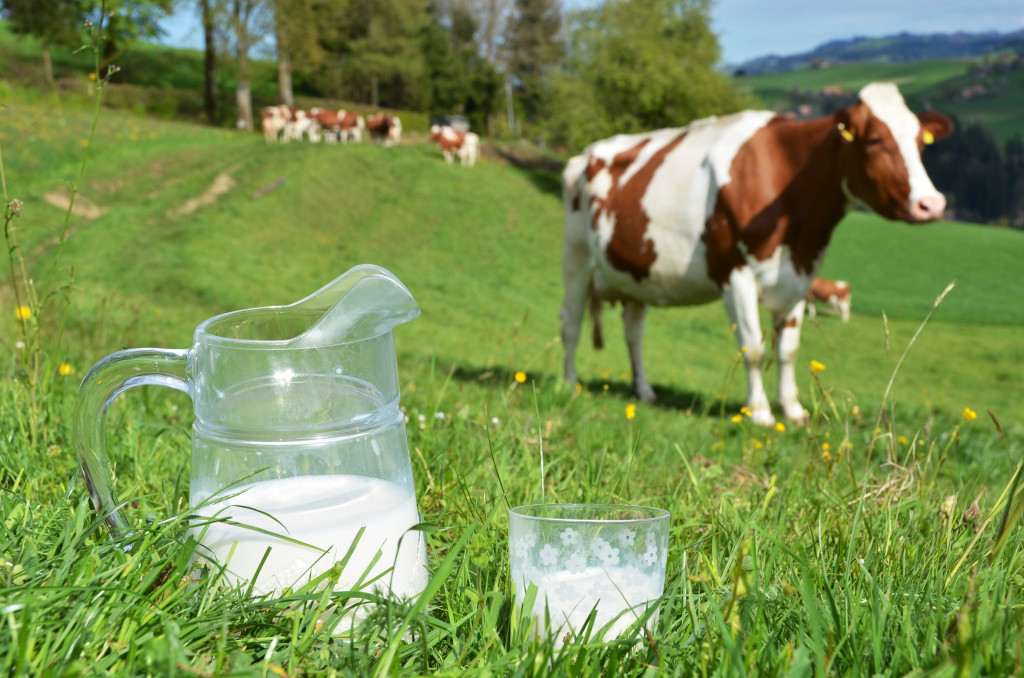The more milk you drink, the healthier and stronger your bones will be right? Well this is not the case according to a recent study that has linked drinking three or more glasses of milk a day to dying prematurely. This type of evidence should leave government officials and healthcare workers rethinking how much they try to push the so called ‘good white’ stuff.
High Milk Consumption Study Published in the BMJ
This surprising study, conducted in Sweden, published in last month’s edition of the British Medical Journal examined whether high milk consumption could be associated with mortality and fractures in women and men.
It was conducted across 3 counties in Sweden, where 2 community based cohorts were used, a group of more than 45,000 men aged 45-79 and a group of more than 60,000 women aged 39-74.
Milk is the main dietary source of ‘D-galactose’, which is the result of lactose digestion by the enzymes in our body. It had been shown that mild exposure to D-galactose appeared to promote ageing in animals.
The Swedish study therefore hypothesized that the high content of lactose in milk may increase oxidative stress and inflammation within the human body, which in turn affect the risk of mortality and fracture.
At the end of the study, the Swedish research team concluded that full fat milk products may in fact cancel out the positive effects of the calcium found within cow’s milk and may in fact instead trigger inflammation and increase the risk of suffering a heart attack, and also showed that a high milk intake was associated with higher mortality in men and women, and a higher fracture incidence in women.
Overall the correlation between high milk intake and risk of premature death was more obvious for women than men.
Professor Karl Michaelsson, the lead author of the study is quoted as saying:
“Our results may question the validity of recommendations to consume high amounts of milk to prevent fragility fractures. A higher consumption of milk in women and men is not accompanied by a lower risk of fracture and instead may be associated with a higher rate of death.”
More Problems Caused By Dairy
This is not the first time dairy has been brought under the spotlight for the wrong reason.
As it is thought that as many as 65 percent of the population are intolerant to lactose, the naturally occurring sugar found in cow’s milk, which comes as a result of not being able to produce enough of the enzyme lactase needed to break it down.
Also, many scholars have noticed that when it comes to osteoporosis and milk consumption, the numbers just don’t add up. The countries with the highest rates of osteoporosis, such as the United States and countries in the European Union are some of the biggest global milk consumers.
Explore Better Calcium Rich Sources
Milk has long been hailed as a vital part of a balanced diet by governments throughout the Western World. Guidelines recommend that we consume a high intake of milk to prevent osteoporosis and maintain strong bones throughout our lifetime, but as we have now seen this advice may not be completely accurate or the best for our health in the long run.
It is correct that our bodies need calcium for many important functions, including building strong teeth and bones, and helping the blood to clot however, it may be a great time to look at how we can protect ourselves from osteoporosis and find other sources of calcium.
Almonds, sweet potatoes, baked beans and leafy greens such as kale and spinach collard greens, are just some of the dairy free sources of calcium available to us – and as no cows are needed, by choosing these easy to absorb sources of calcium you are directly helping to also reduce animal abuse and methane gas given off from grazing livestock.
In addition, there are plenty of fantastic alternatives to milk available on the market. It is possible to make organic almond milk at home. Supermarkets and health food shops stock cashew milk, rice milk and even coconut milk.
All are delicious non-dairy replacements that can all be used in the same way as regular cow’s milk.
Exercise & Sun Your Way to a Happy, Healthy Life
Strong bones are not just achieved by what you eat exclusively but are also a result of an active, healthy lifestyle.
As osteoporosis can also be avoided by including weight bearing exercise into your day; jogging, walking and dancing are great examples. Such activity can even help bones to increase their density.
Also getting access to sunlight on a regular basis for short ten minute intervals will keep levels of vitamin D high, which is needed to help the body absorb and utilise calcium in the first place.
It is certainly time to change the way that we perceive dairy milk and indeed the guidelines that are churned out to us en masse. An active, healthy lifestyle and a balanced diet is the key – not only for strong bones, but a full and happy life.
